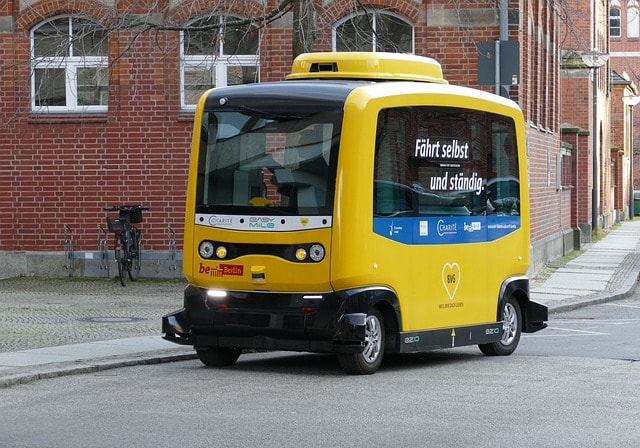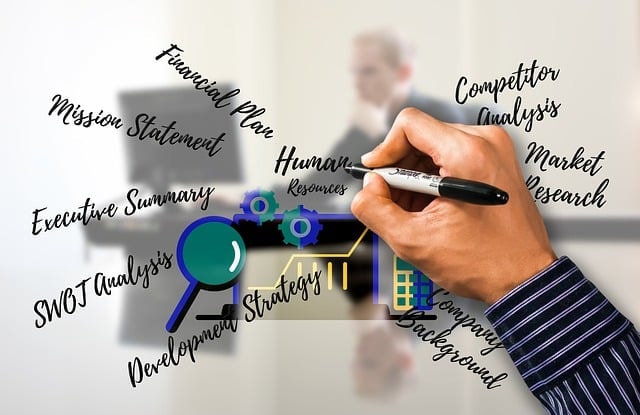Artificial Intelligence (AI) has become a buzzword, sparking debates across dinner tables and boardrooms alike. As AI systems continue to evolve, the question remains: is AI good or bad? This article delves into the intricacies of AI, examining its potential benefits and drawbacks, and how it impacts human beings and society at large.
Key Takeaways:
- AI is a powerful tool that can significantly benefit society by automating repetitive tasks and improving efficiency.
- Ethical considerations and potential risks, such as job displacement and privacy concerns, must be addressed.
- According to a recent AI report, the adoption of AI technologies is critical for businesses to stay competitive, addressing productivity, efficiency, and ethical challenges.
- The future of AI depends on responsible development and deployment, ensuring it complements human intelligence rather than replacing it.
Introduction to Artificial Intelligence
Definition and History
AI is a broad field within computer science that encompasses a range of techniques, including machine learning, natural language processing, and computer vision. The history of AI dates back to the 1950s when the first AI program was developed. Over the decades, AI has seen significant advancements, from the creation of expert systems and rule-based systems to the development of sophisticated machine learning algorithms. Today, AI is embedded in numerous applications, such as virtual assistants, self-driving cars, and medical diagnosis, showcasing its versatility and impact on everyday life.
Key Concepts and Terminology
Understanding AI involves familiarizing oneself with several key concepts and terminologies. Machine learning refers to the ability of AI systems to learn from data and improve their performance over time. Deep learning, a subset of machine learning, uses neural networks to analyze complex data, enabling AI to perform tasks such as image and speech recognition. Natural language processing (NLP) allows AI systems to understand and generate human language, facilitating interactions between humans and machines. Computer vision enables AI to interpret and understand visual data from images and videos, making it possible for applications like facial recognition and autonomous vehicles to function effectively.
The Rise of Artificial Intelligence
AI has transitioned from the pages of science fiction to our everyday lives. From self-driving cars to AI-powered robots, these technologies are reshaping how we live and work. AI development has accelerated, with AI systems now capable of performing complex tasks that were once the domain of human intelligence.
Understanding AI Systems
AI systems work by analyzing vast amounts of data, using machine learning models and deep learning techniques to make decisions. These systems function as a computer program that simulates human intelligence, enabling them to think, learn, and adapt. However, the quality of training data is crucial, as biased or incomplete data can lead to flawed AI algorithms.
AI in Everyday Life
AI’s presence in our daily lives is undeniable. From smart cities to facial recognition, AI technologies are integrated into various aspects of our lives. AI tools are used to automate repetitive tasks, freeing up human resources for more creative endeavors. However, the reliance on AI systems also raises concerns about privacy and data security.

The Benefits of AI
AI's ability to perform tasks with precision and speed offers numerous benefits, including enhancing safety through real-time monitoring and improving fraud detection by analyzing transaction patterns. In the healthcare industry, AI can complete tasks such as analyzing medical images and improving patient outcomes. AI-powered systems can also enhance supply chain operations and streamline production processes, leading to increased efficiency and reduced costs.
AI Development and Deployment
The development and deployment of AI systems involve several stages, including data collection, data preprocessing, model training, model testing, and model deployment. Successful AI development requires large amounts of data, which can be sourced from sensors, databases, and social media platforms. This data is then used to train AI models, enabling them to perform specific tasks with high accuracy.
AI Development Process
The AI development process is a multi-step journey that begins with defining the problem to be solved. Once the problem is clearly defined, data is collected and preprocessed to ensure it is suitable for training the AI model. The next step involves selecting the appropriate algorithm and training the model using the preprocessed data. After training, the model is tested to evaluate its performance and make any necessary adjustments. Finally, the model is deployed in real-world applications, where it can automate repetitive tasks, analyze complex data, and assist in decision-making processes.
AI development requires a multidisciplinary approach, combining expertise in computer science, mathematics, and domain-specific knowledge. While AI systems offer numerous benefits, such as increased efficiency and the ability to handle complex tasks, they also pose risks, including job displacement, bias, and security concerns. Therefore, it is crucial to consider ethical considerations and ensure that AI systems are developed and deployed responsibly, balancing innovation with the well-being of society.

AI and Job Displacement
While AI can automate repetitive tasks, it also poses a risk of job displacement. As AI technologies advance, there is a growing concern about the impact on human workers. However, AI can also create new job opportunities, particularly in fields related to AI development and maintenance.
Ethical Considerations in AI
The ethical implications of AI are a hot topic. AI systems must be designed to enhance human life, not replace it. Ethical considerations include ensuring AI algorithms are transparent and unbiased, and that AI technologies are used responsibly to benefit society as a whole.
AI in Healthcare
AI’s impact on healthcare is profound. AI systems can analyze complex data and assist in medical diagnoses, leading to more accurate and timely treatments. AI tools are also used in drug discovery, accelerating the development of new medications and therapies.

AI in Autonomous Vehicles
Autonomous vehicles are a prime example of AI's potential. These self-driving cars use AI to navigate roads and make split-second decisions, reducing human error and potentially decreasing traffic accidents. However, the safety and reliability of such systems remain a concern.
AI and Climate Change
AI can play a significant role in addressing climate change. Machine learning algorithms can analyze data points to predict environmental changes and optimize energy consumption. AI-powered systems can also improve the efficiency of renewable energy sources, contributing to a more sustainable future.
AI in Creative Tasks
AI's ability to perform creative tasks is expanding. Generative AI systems can produce art, music, and literature, challenging the notion of creativity as a uniquely human trait. While AI can enhance creative processes, it also raises questions about originality and authorship.
AI and Human Intelligence
AI is not a replacement for human intelligence but a complement to it. While narrow AI specializes in specific tasks, artificial general intelligence is characterized by its ability to acquire and synthesize knowledge across various domains, mimicking human-like reasoning and understanding. AI systems can handle complex tasks and analyze data at a scale beyond human capabilities. However, critical thinking and emotional intelligence remain uniquely human attributes that AI cannot replicate.
The Future of AI
The future of AI is both exciting and uncertain. As AI technologies continue to evolve, their impact on future generations will depend on how they are developed and deployed. Responsible AI development is crucial to ensure that AI benefits society and aligns with human values.

AI Risks and Challenges
AI poses several risks and challenges, including privacy concerns, security threats, and ethical dilemmas. AI systems must be designed with safeguards to prevent misuse, reduce human errors, and ensure they operate within ethical boundaries. Addressing these challenges is essential for the responsible adoption of AI.
AI in Multiple Industries
AI's impact spans multiple industries, from healthcare to finance to manufacturing. AI tools can improve efficiency, reduce costs, and enhance decision-making processes. However, the integration of AI into various sectors requires careful consideration of its potential risks and benefits.
AI and Human Resources
AI is transforming human resources by automating tasks such as data entry and recruitment. An AI system can analyze candidate data and streamline hiring processes. However, the use of AI in HR also raises concerns about bias and fairness in decision-making.
AI in Smart Cities
Smart cities leverage AI technologies to improve urban living. AI systems can optimize traffic flow, manage energy consumption, and enhance public safety. The development of smart cities requires collaboration between governments, businesses, and communities to ensure AI is used responsibly.
AI in Education
AI is revolutionizing education by providing personalized learning experiences. AI systems can adapt to individual learning styles and pace, offering tailored educational content. However, the use of AI in education also raises questions about data privacy and the role of teachers.
AI in Production Processes
AI is enhancing production processes by automating tasks and optimizing operations. AI-powered systems can monitor production lines, predict maintenance needs, and improve quality control. The integration of AI in manufacturing can lead to increased efficiency and reduced waste.

AI in Drug Discovery
AI is accelerating drug discovery by analyzing vast amounts of data to identify potential drug candidates. AI systems can predict the efficacy and safety of new drugs, reducing the time and cost of bringing new treatments to market. However, the use of AI in drug discovery also requires careful consideration of ethical and regulatory issues.
AI in Data Centers
AI is transforming data centers by optimizing energy consumption and improving operational efficiency. AI-powered systems can monitor and manage data center operations, reducing costs and environmental impact. The use of AI in data centers is essential for supporting the growing demand for data processing and storage.
AI in Facial Recognition
AI-powered facial recognition systems are used in various applications, from security to marketing. These systems can identify individuals and analyze emotions, offering valuable insights for businesses and governments. However, the use of facial recognition also raises privacy and ethical concerns.
AI in Medical Diagnosis
AI is revolutionizing medical diagnoses by analyzing complex data and providing accurate assessments. AI systems can assist doctors in diagnosing diseases and developing treatment plans, improving patient outcomes. However, the reliance on AI in medical diagnosis also requires careful consideration of ethical and legal issues.
AI in Supply Chain Operations
AI is enhancing supply chain operations by optimizing logistics and inventory management. AI-powered systems can predict demand, reduce waste, and improve efficiency. The integration of AI in supply chain operations can lead to significant cost savings and improved customer satisfaction.

AI in Climate Change Mitigation
AI can play a crucial role in mitigating climate change by optimizing energy consumption and reducing emissions. AI systems can analyze environmental data and develop strategies for sustainable resource management. The use of AI in climate change mitigation requires collaboration between governments, businesses, and communities.
AI in Enhancing Critical Thinking
Artificial intelligence is not just about automating repetitive tasks; it also plays a pivotal role in enhancing critical thinking among human beings. AI systems, through machine learning models and natural language processing, provide insights that challenge traditional thought processes. For instance, AI-powered tools can analyze complex data sets, offering perspectives that might elude human intelligence. This capability encourages individuals to think outside the box, fostering a culture of innovation and creativity. As AI development continues, the integration of AI technologies in educational settings can further stimulate critical thinking, preparing future generations for a rapidly changing world.
Moreover, AI's ability to process vast amounts of information quickly allows human workers to focus on more strategic and creative tasks. By handling data entry and other mundane activities, AI systems free up time for individuals to engage in deeper analysis and problem-solving. This shift not only benefits society by enhancing productivity but also empowers individuals to develop their critical thinking skills. As AI tools become more sophisticated, they will continue to serve as a powerful tool in transforming how we approach challenges, ultimately leading to more informed decision-making and innovative solutions across multiple industries.
AI in Financial Services
Artificial intelligence is reshaping the financial services sector, offering a powerful tool for analyzing complex data and automating repetitive tasks. AI systems work tirelessly to detect fraudulent activities, assess credit risks, and even predict stock market trends. By leveraging machine learning algorithms, financial institutions can analyze data points with precision, reducing human error and enhancing decision-making processes. AI's ability to process vast amounts of information quickly is a game-changer, allowing human workers to focus on more critical thinking tasks. As AI development continues, the financial industry is poised to benefit society by improving efficiency and security.
The adoption of AI technologies in financial services is not without its challenges. Ethical considerations, such as data privacy and the potential for job displacement, must be addressed. However, the integration of AI tools can lead to more personalized customer experiences and streamlined operations. For instance, AI-powered chatbots are revolutionizing customer service by providing instant support and resolving queries at any time of the day. As AI systems become more sophisticated, they will continue to transform the financial landscape, offering new opportunities for growth and innovation while ensuring that human beings remain at the heart of financial decision-making.

AI in Agriculture
In the agricultural sector, artificial intelligence is sowing the seeds of transformation. AI systems are being used to optimize crop yields, monitor soil health, and manage resources more efficiently. By employing machine learning models, farmers can analyze data from weather patterns, soil conditions, and crop health to make informed decisions. This not only enhances productivity but also reduces the environmental impact of farming practices. AI's ability to perform tasks such as pest detection and irrigation management allows farmers to focus on more strategic aspects of agriculture, ultimately benefiting society by ensuring food security for future generations.
The rapid development of AI in agriculture is also addressing labor shortages and improving the quality of produce. AI-powered robots are capable of performing dangerous tasks, such as harvesting crops in hazardous conditions, thereby reducing the risk to human workers. Additionally, AI tools are being used to automate data entry and streamline supply chain operations, ensuring that fresh produce reaches consumers at its peak. As AI technologies continue to evolve, they hold the promise of revolutionizing agriculture, making it more sustainable and efficient while maintaining the delicate balance between technology and human intelligence

AI in Science Fiction and Reality
The portrayal of artificial intelligence in science fiction often paints a picture of futuristic worlds where AI systems possess human-like intelligence. While these narratives captivate our imagination, the reality of AI is both more grounded and more impactful in everyday life. AI programs today are designed to perform tasks that benefit society, such as improving patient outcomes in healthcare or optimizing supply chain operations. These applications demonstrate how AI technologies are already reshaping industries, moving beyond the realm of fiction into tangible, real-world solutions that enhance our daily experiences.
In contrast to the dramatic scenarios depicted in movies, the vast majority of AI systems work quietly behind the scenes, analyzing data points and automating processes to improve efficiency. For example, AI algorithms in self-driving cars and autonomous vehicles are revolutionizing transportation by reducing human error and increasing safety. Similarly, AI in medical diagnosis leverages deep learning to analyze medical images, providing more accurate and timely results. As AI continues to evolve, its integration into various aspects of life will blur the lines between science fiction and reality, offering exciting possibilities for the future.
AI in Autonomous Vehicles Safety
The safety of autonomous vehicles is a significant concern. AI systems must be designed to ensure the safety and reliability of self-driving cars. The development of autonomous vehicles requires rigorous testing and validation to ensure they operate safely on public roads.
AI in Creative Industries
AI is transforming creative industries by automating tasks and enhancing creative processes. AI-powered systems can generate art, music, and literature, offering new opportunities for artists and creators. However, the use of AI in creative industries also raises questions about originality and authorship.

AI in Human Error Reduction
AI can reduce human error by automating tasks and providing accurate assessments. AI systems can assist in decision-making processes, reducing the risk of errors and improving outcomes. The use of AI in reducing human error requires careful consideration of ethical and legal issues.
AI in Ethical Considerations
The ethical considerations of AI are a critical aspect of its development and deployment. AI systems must be designed to operate within ethical boundaries and ensure transparency and accountability. Addressing ethical considerations is essential for the responsible adoption of AI.
AI in Future Generations
The impact of AI on future generations will depend on how it is developed and deployed. Responsible AI development is crucial to ensure that AI benefits society and aligns with human values. The future of AI requires collaboration between governments, businesses, and communities to ensure its responsible use.

AI in Dangerous Tasks
AI can perform dangerous tasks, reducing the risk to human workers. AI-powered systems can operate in hazardous environments, improving safety and efficiency. The use of AI in dangerous tasks requires careful consideration of ethical and legal issues.
AI in Complex Data Analysis
AI is transforming data analysis by processing complex data and providing valuable insights. AI systems can analyze large datasets and identify patterns, improving decision-making processes. The use of AI in data analysis requires careful consideration of ethical and legal issues.
AI in Powerful Tools
AI is a powerful tool that can significantly benefit society by automating tasks and improving efficiency. AI-powered systems can enhance decision-making processes and reduce costs. However, the use of AI also requires careful consideration of ethical and legal issues.
AI in Job Creation
AI can create new job opportunities, particularly in fields related to AI development and maintenance. AI-powered systems can automate tasks and improve efficiency, leading to increased demand for skilled workers. The use of AI in job creation requires careful consideration of ethical and legal issues.
AI in Representative Data
The quality of training data is crucial for the accuracy and efficiency of AI systems. AI systems must be trained on representative data to ensure they operate effectively. The use of representative data in AI development requires careful consideration of ethical and legal issues.
AI in Data Points Analysis
AI can analyze data points to provide valuable insights and improve decision-making processes. AI-powered systems can process large datasets and identify patterns, enhancing efficiency and reducing costs. The use of AI in data points analysis requires careful consideration of ethical and legal issues.
AI in Automated Systems
AI is transforming automated systems by improving efficiency and reducing costs. AI-powered systems can automate tasks and enhance decision-making processes, leading to increased productivity. The use of AI in automated systems requires careful consideration of ethical and legal issues.
AI in Smart Cities Development
AI is transforming smart cities by optimizing urban living and improving efficiency. AI-powered systems can manage traffic flow, energy consumption, and public safety, enhancing quality of life. The development of smart cities requires collaboration between governments, businesses, and communities to ensure AI is used responsibly.
AI in Facial Recognition Technology
AI-powered facial recognition technology is used in various applications, from security to marketing. These systems can identify individuals and analyze emotions, offering valuable insights for businesses and governments. However, the use of facial recognition technology also raises privacy and ethical concerns.
AI in Medical Diagnosis Improvement
AI is revolutionizing medical diagnosis by analyzing complex data and providing accurate assessments. AI systems can assist doctors in diagnosing diseases and developing treatment plans, improving patient outcomes. However, the reliance on AI in medical diagnosis also requires careful consideration of ethical and legal issues.
AI in Production Processes Optimization
AI is enhancing production processes by automating tasks and optimizing operations. AI-powered systems can monitor production lines, predict maintenance needs, and improve quality control. The integration of AI in manufacturing can lead to increased efficiency and reduced waste.
AI in Healthcare Industry Transformation
AI is transforming the healthcare industry by improving patient outcomes and reducing costs. AI-powered systems can analyze medical images, assist in diagnosis, and develop treatment plans. The use of AI in healthcare requires careful consideration of ethical and legal issues.
AI in Own Pace Learning
AI is revolutionizing education by providing personalized learning experiences. AI systems can adapt to individual learning styles and pace, offering tailored educational content. However, the use of AI in education also raises questions about data privacy and the role of teachers.
AI in Creative Tasks Enhancement
AI's ability to perform creative tasks is expanding. Generative AI systems can produce art, music, and literature, challenging the notion of creativity as a uniquely human trait. While AI can enhance creative processes, it also raises questions about originality and authorship.
AI in Rapid Development
The rapid development of AI technologies is transforming various industries. AI-powered systems can automate tasks, improve efficiency, and enhance decision-making processes. However, the rapid development of AI also requires careful consideration of ethical and legal issues.
AI in Multiple Industries Impact
AI's impact spans multiple industries, from healthcare to finance to manufacturing. AI tools can improve efficiency, reduce costs, and enhance decision-making processes. However, the integration of AI into various sectors requires careful consideration of its potential risks and benefits.
AI in Improving Patient Outcomes
AI is revolutionizing healthcare by improving patient outcomes and reducing costs. AI-powered systems can analyze medical images, assist in diagnosis, and develop treatment plans. The use of AI in healthcare requires careful consideration of ethical and legal issues.

Q1: What are the benefits of AI in healthcare?
AI can analyze medical images, assist in diagnosis, and develop treatment plans, improving patient outcomes and reducing costs.
Q2: How does AI impact job displacement?
AI can automate repetitive tasks, potentially leading to job displacement. However, it can also create new job opportunities in AI development and maintenance.
Q3: What ethical considerations are associated with AI?
Ethical considerations include ensuring AI algorithms are transparent and unbiased, and that AI technologies are used responsibly to benefit society as a whole.

Summary
AI is a double-edged sword, offering both significant benefits and potential risks. Its ability to automate tasks and improve efficiency can transform industries and enhance quality of life. However, ethical considerations and potential risks, such as job displacement and privacy concerns, must be addressed. The future of AI depends on responsible development and deployment, ensuring it complements human intelligence rather than replacing it.









